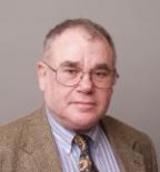Claude Rawson
Maynard Mack Professor of English
 Claude Rawson, B. Litt., M.A. The University of Oxford, you have no earned Ph.D. or D. Phil and yet you are, by everyone’s attestation, one of the most learned men your colleagues know. At Yale you carry the title Maynard Mack professor, and if there ever was a man fit to carry it the title of this legendary scholar, it is you. Preeminent among scholars of eighteenth-century British literature in your generation, you came to Yale as Professor of English in 1986. Like Mack before you, you have set the standard for scholarship in literary study of the eighteenth century in your time, and you have drawn the attention of scholars everywhere to Yale as its beacon. As an editor, you have established definitive texts for eighteenth-century authors. As a critic, you have shown precisely why good editions of their works matter by exemplifying how they can best be read—with care, judgment, wit, imagination, and humanity. The extraordinary scope of your publications—eight books, over two-hundred articles, a dozen editions of major authors and as many edited collections—has taken nothing away from their multi-faceted particularity. They range from the magisterial critical studies of Henry Fielding and Jonathan Swift in their Augustan literary contexts to the wide-ranging account of literary responses to the history of human cruelty in God, Gulliver, and Genocide: Barbarism and the European Imagination, 1492-1945, which eloquently proves, among other things, why we still need a satirist of Swift’s lacerating irony today.
Claude Rawson, B. Litt., M.A. The University of Oxford, you have no earned Ph.D. or D. Phil and yet you are, by everyone’s attestation, one of the most learned men your colleagues know. At Yale you carry the title Maynard Mack professor, and if there ever was a man fit to carry it the title of this legendary scholar, it is you. Preeminent among scholars of eighteenth-century British literature in your generation, you came to Yale as Professor of English in 1986. Like Mack before you, you have set the standard for scholarship in literary study of the eighteenth century in your time, and you have drawn the attention of scholars everywhere to Yale as its beacon. As an editor, you have established definitive texts for eighteenth-century authors. As a critic, you have shown precisely why good editions of their works matter by exemplifying how they can best be read—with care, judgment, wit, imagination, and humanity. The extraordinary scope of your publications—eight books, over two-hundred articles, a dozen editions of major authors and as many edited collections—has taken nothing away from their multi-faceted particularity. They range from the magisterial critical studies of Henry Fielding and Jonathan Swift in their Augustan literary contexts to the wide-ranging account of literary responses to the history of human cruelty in God, Gulliver, and Genocide: Barbarism and the European Imagination, 1492-1945, which eloquently proves, among other things, why we still need a satirist of Swift’s lacerating irony today.
While the 18th century is your natural home, it has not restricted you. You are formidably read and have a great literary and critical range. You are General Editor of the Cambridge History of Literary Criticism. Your wide-ranging reviews appear in the Times Literary Supplement, New York Times Book Review and London Review of Books. And over many years your seminar on T.S. Eliot has been a favored one by the English department’s strongest students.
But it was Alexander Pope, in An Essay on Criticism (1711), when he set forth the attributes of an excellent critic, who best defines your essential attributes, and as you retire your colleagues send you off with Pope’s accolade now: “Blest with a Taste exact, yet unconfin’d; / A Knowledge both of Books and Humankind.”
Tribute Editor: Penelope Laurans